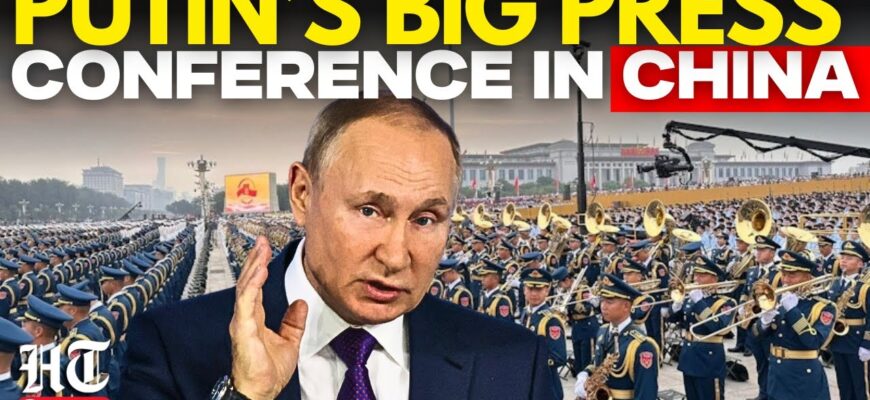President Vladimir Putin`s four-day visit to Beijing culminated in a much-anticipated press approach, a diplomatic ritual designed to distill high-stakes discussions into carefully crafted public statements. The stage was set in the Chinese capital, a familiar backdrop for what has become a pivotal strategic partnership in contemporary geopolitics.
A Summit of Substance and Symbolism
This extensive visit was far from a mere exchange of pleasantries. In an era defined by fluid global alliances and significant economic shifts, the Russia-China axis commands considerable international attention. The agenda for the summit, while formally disclosed in general terms, undoubtedly encompassed a wide array of critical issues, from robust energy agreements to ambitious infrastructure initiatives, all framed by an increasingly complex global landscape.
Observers worldwide keenly awaited insights into the tangible outcomes and future direction of this collaboration. The timing itself, September 3, 2025, places the visit within a future context where the dynamics of international relations are only intensifying.
The Core Agenda: Beyond Headlines
While the precise details of closed-door negotiations remain, the core themes are relatively predictable for a summit of this magnitude. Analysts broadly anticipated discussions focusing on:
- Economic Cooperation: Strengthening trade ties, particularly in energy, where Russia serves as a significant supplier to China. This includes the exploration of new pipelines and increased commodity exchanges.
- Technological Partnership: Collaboration in advanced technologies, potentially encompassing areas from artificial intelligence to aerospace, aimed at fostering innovation and reducing reliance on Western systems.
- Defense and Security Coordination: Joint military exercises, information sharing, and a harmonized stance on regional and global security challenges, reflecting a mutual commitment to strategic stability.
- Global Governance: A shared vision for a multipolar world order, often articulated through platforms like BRICS and the Shanghai Cooperation Organization (SCO), seeking to reshape international norms and institutions.
The economic tapestry woven by these two nations continues to expand, seeking to fortify their respective positions and resilience in the global marketplace.
The Art of the Press Approach: Diplomacy in the Public Eye
A “press approach” by a head of state following such a significant visit is a meticulously orchestrated affair. It serves not just as a platform for disseminating information, but also for projecting a unified front and controlling the narrative. Journalists, representing both domestic and international outlets, gather with questions prepared, yet fully cognizant that the responses will be carefully measured and diplomatically nuanced.
In the realm of high-level diplomacy, the true art often lies in what is subtly emphasized, or perhaps, what is conspicuously omitted. One might almost picture the scene: a composed demeanor, delivering pronouncements designed to reassure allies, subtly caution adversaries, and maintain a consistent, unwavering message. The answers, while informative, are often designed to be precisely that — answers, not revelations.
Geopolitical Ripples: What This Visit Signifies
Beyond the immediate headlines and the formal statements, this visit underscores a deeper strategic alignment. It speaks to a concerted effort by Moscow and Beijing to foster a multi-polar world order, presenting an alternative to traditional Western-centric frameworks. For Russia, it reaffirms its “pivot to the East,” securing critical economic and political backing in an evolving international climate.
For China, the partnership solidifies a significant ally in its overarching vision for global influence and regional stability. This cooperation extends beyond mere bilateral trade figures; it is fundamentally about shaping future international norms, power dynamics, and the very architecture of global governance. It`s a relationship designed to withstand external pressures and carve out independent spheres of influence.
As the formal pronouncements emerge from Beijing, the world will parse every word, every gesture, and every nuance. This press conference serves as a critical juncture, providing a glimpse into the ongoing evolution of a relationship that profoundly impacts global affairs. When Moscow and Beijing convene at such a high level, it`s not just a bilateral meeting; it`s a signal to the world that their strategic partnership continues to deepen and influence the geopolitical landscape for years to come.








